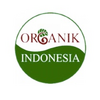
Organik Indonesia
About (Organik Indonesia)
"Organik Indonesia" refers to organic certification standards and practices in Indonesia. Organic agriculture is a method of farming that emphasizes the use of natural inputs and sustainable practices while avoiding the use of synthetic chemicals, genetically modified organisms (GMOs), and other harmful substances.
In Indonesia, the organic certification process is regulated by various organizations and bodies, including the Ministry of Agriculture. The primary organization responsible for organic certification in the country is the Indonesian Organic Alliance (Aliansi Organik Indonesia) or AOI. AOI is a national association that represents organic stakeholders and promotes organic farming practices.
Organik Indonesia certification ensures that agricultural products, including crops, livestock, and processed food items, comply with specific organic standards. These standards cover various aspects of organic production, including soil fertility management, pest and disease control, crop rotation, livestock welfare, and the absence of synthetic pesticides, herbicides, and GMOs.
To obtain Organik Indonesia certification, farmers and producers must undergo an inspection and assessment process by accredited certification bodies. These bodies evaluate the farm's compliance with organic standards, including the use of organic inputs, record-keeping practices, and adherence to sustainable agricultural practices.
The Organik Indonesia label on products provides assurance to consumers that the products have been produced according to recognized organic standards. It allows consumers to make informed choices and support sustainable and environmentally friendly agriculture.
Additionally, Organik Indonesia certification promotes the growth of the organic sector in Indonesia and supports local farmers who adopt organic practices. It helps to build trust between producers and consumers, as well as facilitates access to markets that prioritize organic products.
It's worth noting that Organik Indonesia certification specifically pertains to organic practices in Indonesia and may not be recognized or applicable in other countries. Consumers and businesses interested in organic products should look for certification labels specific to their region or rely on internationally recognized organic certification standards such as those provided by the International Federation of Organic Agriculture Movements (IFOAM).
In summary, Organik Indonesia refers to the organic certification standards and practices in Indonesia. The certification ensures that agricultural products comply with specific organic standards and allows consumers to make informed choices about sustainable and environmentally friendly products.